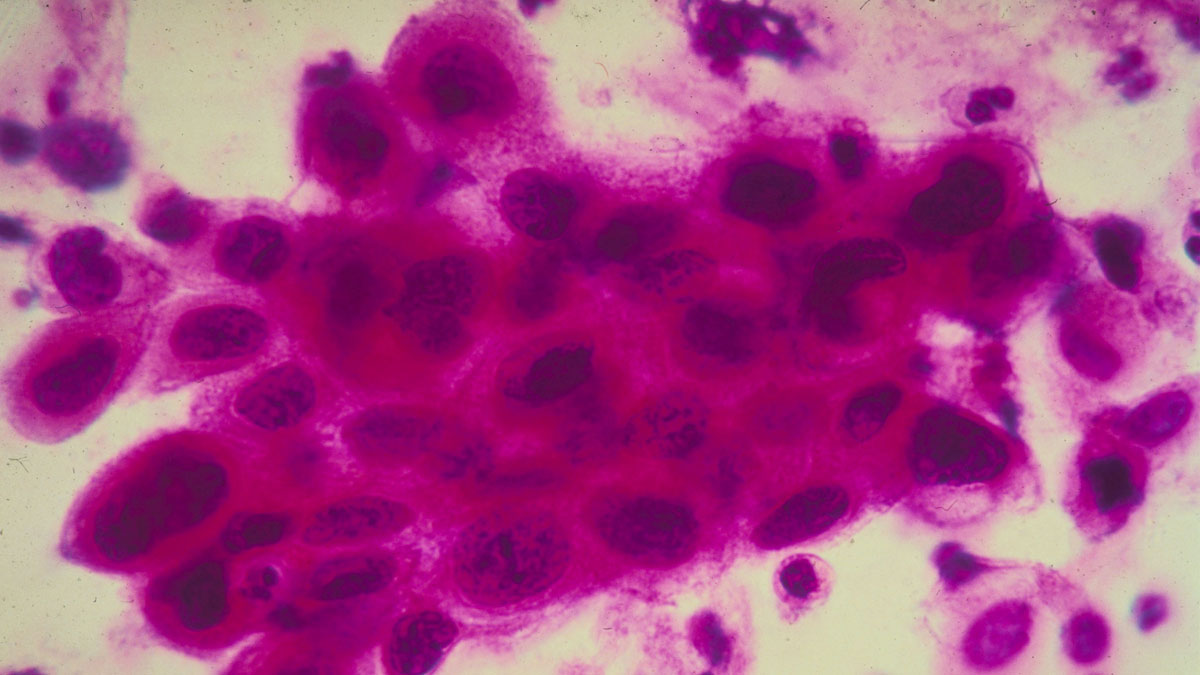Scientists take 'very positive step' towards universal cancer vaccine
Genetic breakthrough sees patients' immune systems tricked into attacking tumours

A free daily email with the biggest news stories of the day – and the best features from TheWeek.com
You are now subscribed
Your newsletter sign-up was successful
Scientists have taken a "very positive step" towards creating a universal vaccine against cancer, say experts.
Reported in the journal Nature, the potential new therapy involves patients' immune systems attacking tumours as if they were viruses.
Pieces of cancer's genetic RNA code were placed into nanoparticles of fat and injected into three patients in the advanced stage of the disease. In response, the immune systems produced cells designed to specifically attack the disease.
The Week
Escape your echo chamber. Get the facts behind the news, plus analysis from multiple perspectives.

Sign up for The Week's Free Newsletters
From our morning news briefing to a weekly Good News Newsletter, get the best of The Week delivered directly to your inbox.
From our morning news briefing to a weekly Good News Newsletter, get the best of The Week delivered directly to your inbox.
The vaccine was also found to be effective in fighting "aggressively growing" tumours in mice, say the researchers, who were led by Professor Ugur Sahin from Johannes Gutenberg University in Germany.
"The vaccines are fast and inexpensive to produce and virtually any tumour antigen can be encoded by RNA," said Sahin.
"The approach introduced here may be regarded as a universally applicable novel vaccine class for cancer immunotherapy."
Dr Helen Rippon, the chief executive of Worldwide Cancer Research, described it as a "very positive step forwards towards the global goal of a 'universal cancer vaccine'".
A free daily email with the biggest news stories of the day – and the best features from TheWeek.com
She added: "We know the immune system has great potential to be manipulated and reactivated to fight cancer cells. These are exciting and novel results, showing the promise of an RNA nanoparticle vaccine to do just that."
The genetic code could be "programmed" for any cancer, says the Daily Telegraph. "All doctors would need is the genetic profile of the tumour to make a custom-made vaccine which, as well as fighting the disease, would prevent it ever returning."
While heralding the breakthrough, Dr Aine McCarthy, Cancer Research UK's senior science information officer, warned that larger clinical trials were needed to confirm that it "works and is safe. More research is also needed to determine if it can be used to treat other types of cancer, she said.
It is "still very early days", says ScienceAlert, but we have "another reason to feel hopeful about the future of cancer treatment – and that's always a good thing".
-
 The ‘ravenous’ demand for Cornish minerals
The ‘ravenous’ demand for Cornish mineralsUnder the Radar Growing need for critical minerals to power tech has intensified ‘appetite’ for lithium, which could be a ‘huge boon’ for local economy
-
 Why are election experts taking Trump’s midterm threats seriously?
Why are election experts taking Trump’s midterm threats seriously?IN THE SPOTLIGHT As the president muses about polling place deployments and a centralized electoral system aimed at one-party control, lawmakers are taking this administration at its word
-
 ‘Restaurateurs have become millionaires’
‘Restaurateurs have become millionaires’Instant Opinion Opinion, comment and editorials of the day
-
 Epstein files topple law CEO, roil UK government
Epstein files topple law CEO, roil UK governmentSpeed Read Peter Mandelson, Britain’s former ambassador to the US, is caught up in the scandal
-
 Iran and US prepare to meet after skirmishes
Iran and US prepare to meet after skirmishesSpeed Read The incident comes amid heightened tensions in the Middle East
-
 Israel retrieves final hostage’s body from Gaza
Israel retrieves final hostage’s body from GazaSpeed Read The 24-year-old police officer was killed during the initial Hamas attack
-
 China’s Xi targets top general in growing purge
China’s Xi targets top general in growing purgeSpeed Read Zhang Youxia is being investigated over ‘grave violations’ of the law
-
 Panama and Canada are negotiating over a crucial copper mine
Panama and Canada are negotiating over a crucial copper mineIn the Spotlight Panama is set to make a final decision on the mine this summer
-
 Why Greenland’s natural resources are nearly impossible to mine
Why Greenland’s natural resources are nearly impossible to mineThe Explainer The country’s natural landscape makes the task extremely difficult
-
 Iran cuts internet as protests escalate
Iran cuts internet as protests escalateSpeed Reada Government buildings across the country have been set on fire
-
 US nabs ‘shadow’ tanker claimed by Russia
US nabs ‘shadow’ tanker claimed by RussiaSpeed Read The ship was one of two vessels seized by the US military